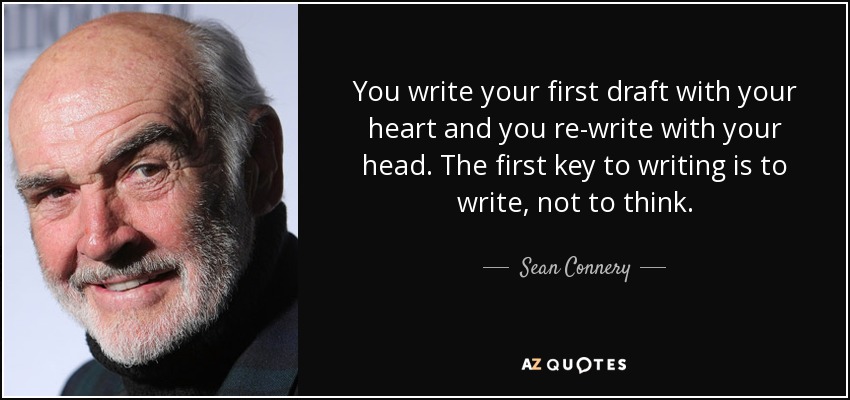Paul Whybrow
Full Member
I came across a quote from one of my favourite painters, which set me thinking about how I write. In particular, how to tackle a couple of thorny scenes in my WIP which will see my detective protagonist do just that—decide something with his head or his heart.
I believe that readers remember incidents in a book that move their hearts, more than those that make them think. However clever your plotting, including red herrings, which makes a reader concentrate to work out what’s happening, it’s still possible to trip them up with a well-placed emotional scene. As William Faulkner said: “The only thing worth writing about is the human heart in conflict with itself.”
Ultimately, Sean Connery may have got things right:

What rules your writing? Your head or your heart?
(Or, your gut, which has feelings too?)
If I create from the heart, nearly everything works; if from the head, almost nothing.
Marc Chagall

Marc Chagall

I believe that readers remember incidents in a book that move their hearts, more than those that make them think. However clever your plotting, including red herrings, which makes a reader concentrate to work out what’s happening, it’s still possible to trip them up with a well-placed emotional scene. As William Faulkner said: “The only thing worth writing about is the human heart in conflict with itself.”
Ultimately, Sean Connery may have got things right:

What rules your writing? Your head or your heart?
(Or, your gut, which has feelings too?)
